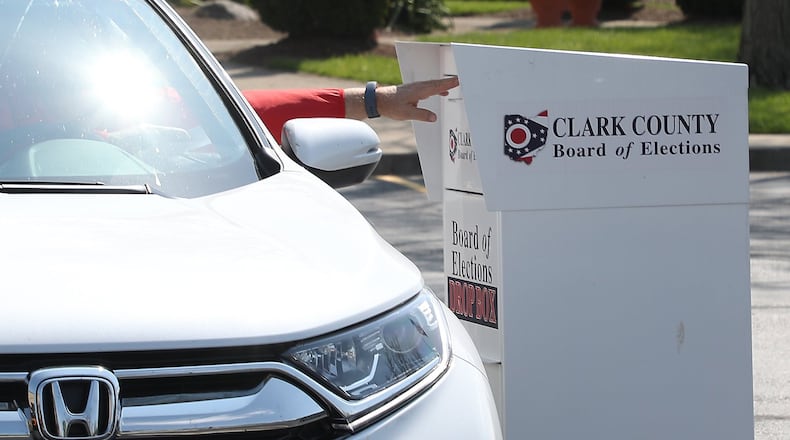If it becomes law, S.B. 293 would require all absentee ballots, delivered either via mail or by hand, to be returned by 7:30 p.m. on Election Day, except for military and overseas ballots.
It would eliminate the existing law’s grace period for domestic mail-in ballots, which are currently counted as long as they’re postmarked the day before the election at the latest and are delivered to the correct board of elections within four days of Election Day.
While sponsors of the bill characterized it as a measure that would protect and improve Ohio’s election process, opponents have derided the bill as an act of voter suppression for no real reason.
“I can’t possibly understand why a lawmaker would consider shortening this window,” Jen Miller, president of the League of Women Voters of Ohio, told this outlet in an interview.
Miller said some 10,000 ballots were delivered by mail within the four-day grace period after the 2024 presidential election. Eliminating it, she argued, would predominantly impact senior citizens or Ohioans with disabilities, who she said “are the most likely to vote absentee” and rely on a prompt delivery from the United States Postal Service.
“But also, in Ohio, Republicans are more likely to request absentee ballots than Democrats, and this is going to disenfranchise large swaths of those folks,” Miller said.
Bill backers, however, argued that eliminating the four-day grace period would get Ohio in line with 34 other states, red and blue alike, across the country, and allow for more certain election results on the night of the election.
On the Senate floor, bill joint sponsor Sen. Theresa Gavarone, R-Bowling Green, told her colleagues that S.B. 293 would “inspire confidence in a fair and secure election.” She pointed out that Ohio would still offer a month of early in-person and absentee voting.
State Sen. Willis Blackshear, Jr., D-Dayton, told his colleagues that over 30 constituents from his district have reached out to his office with concerns about eliminating the grace period. In a press release after the vote, he called the measure “a terrible bill that will disenfranchise thousands of voters in Ohio.”
The Republican caucus’ sole dissenter, Sen. Bill Blessing, R-Colerain Twp., told this outlet in an interview that he didn’t think there’s been a convincing enough case made for why the state should shorten its window.
“You know, I’ve heard it over the past decade now that in Ohio, we have the most secure elections in the country; we’re awesome, we’re awesome, we’re awesome,” he said. “Now, all of a sudden, we’ve got to do this, and I’m like, ‘Where’s the evidence?’”
After the vote, Senate President Rob McColley, R-Napoleon, told this outlet that, in passing S.B. 293, the Ohio Senate is taking a page out of other states across the country that have looked to bring more confidence to their elections.
“I think Ohioans want, on election night, to be confident that the results are what they are, as opposed to having to wait another four days,” McColley said. “I think what we’ve seen across the country, even in instances where there might not be voter fraud, you still see people losing confidence in their election officials and the election systems in those states when there’s uncertainty that extends beyond election night.”
House Speaker Matt Huffman, R-Lima, who will have substantial sway over the bill’s chances in the House, told this outlet the he generally believes absentee ballots should only be used by a voter when absolutely necessary, “because there’s a whole variety of things that can go wrong” and disqualify the ballot, like a mailing delay or a clerical error.
The speaker didn’t reveal his full thoughts on S.B. 293’s proposal to get rid of the grace period, but he noted that he felt Ohio provides plenty of time for Ohioans to vote. “We’ll consider the bill when it comes over,” he said.
For more stories like this, sign up for our Ohio Politics newsletter. It’s free, curated, and delivered straight to your inbox every Thursday evening.
Avery Kreemer can be reached at 614-981-1422, on X, via email, or you can drop him a comment/tip with the survey below.
About the Author

